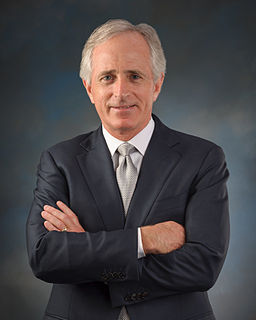A Quote by Bob Corker
If it took multiple debt ceiling hikes, I'd rather achieve the savings.
Related Quotes
Obama has been perhaps the most partisan President since Truman. He hasn't learned to be civil - note his insulting speech to Paul Ryan, who did us the courtesy of scoring a budget. The president has to talk to Republicans when it comes to the debt ceiling. He has reached the debt ceiling before anyone expected.
If you ask the question of Americans, should we pay our bills? One hundred percent would say yes. There's a significant misunderstanding on the debt ceiling. People think it's authorizing new spending. The debt ceiling doesn't authorize new spending; it allows us to pay obligations already incurred.
The most serious problems lie in the financial sphere, where the economy's debt overhead has grown more rapidly than the 'real' economy's ability to carry this debt. [...] The essence of the global financial bubble is that savings are diverted to inflate the stock market, bond market and real estate prices rather than to build new factories and employ more labor.
The United States is the most indebted country in the world. It has almost 17 billion dollars of debt with the rest of the world while living off the world's savings. They are living off the savings of the people of Greece, the savings of the people of Spain, France etc. All of those countries that save their reserves in the banks in dollars are simply financing the American economy, and that is why the average American citizen consumes two and a half times more than their income.


































